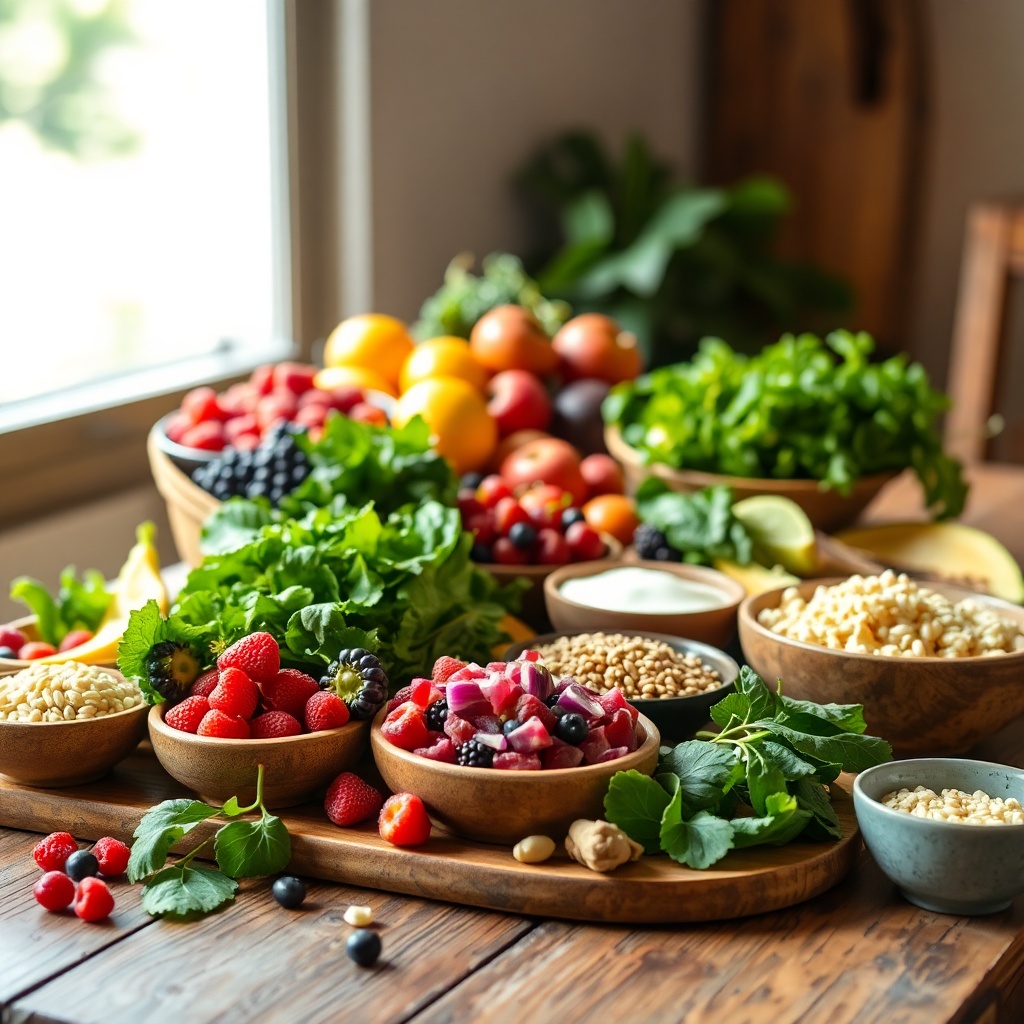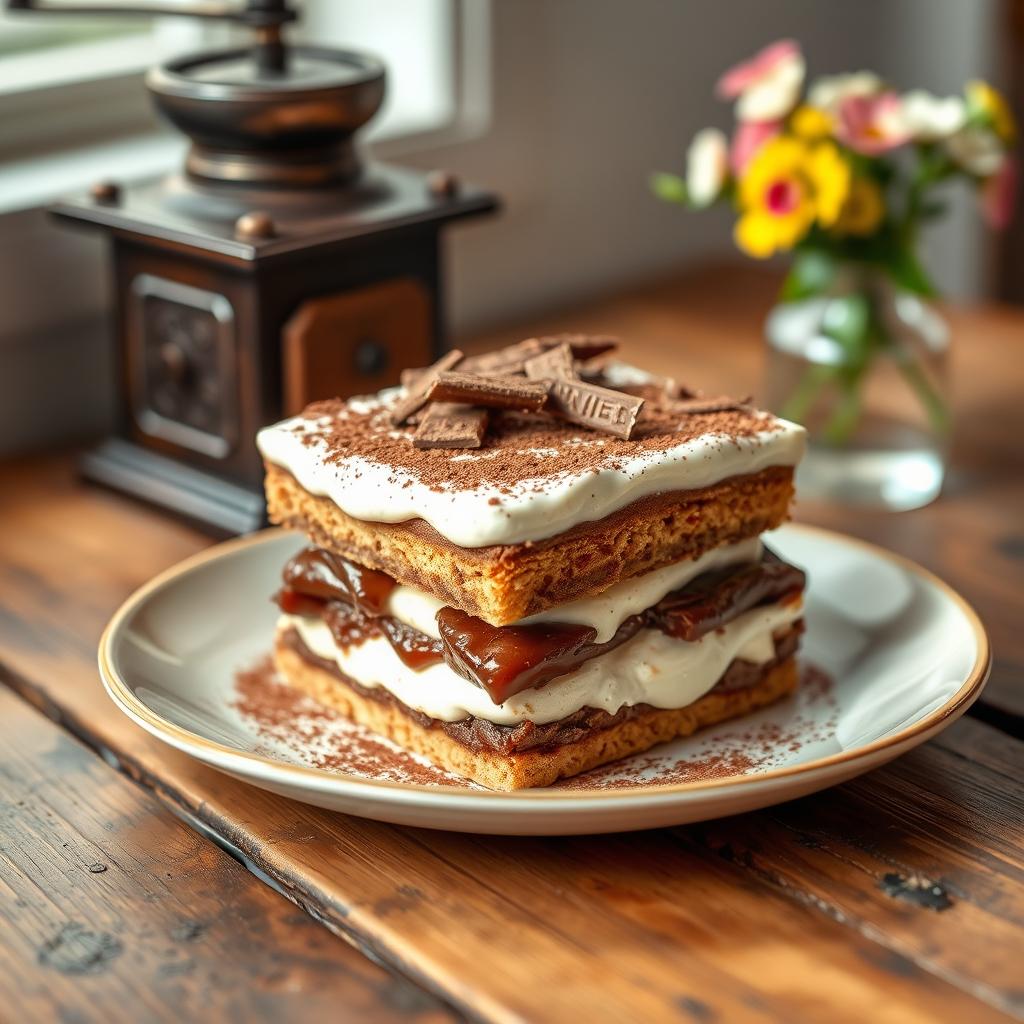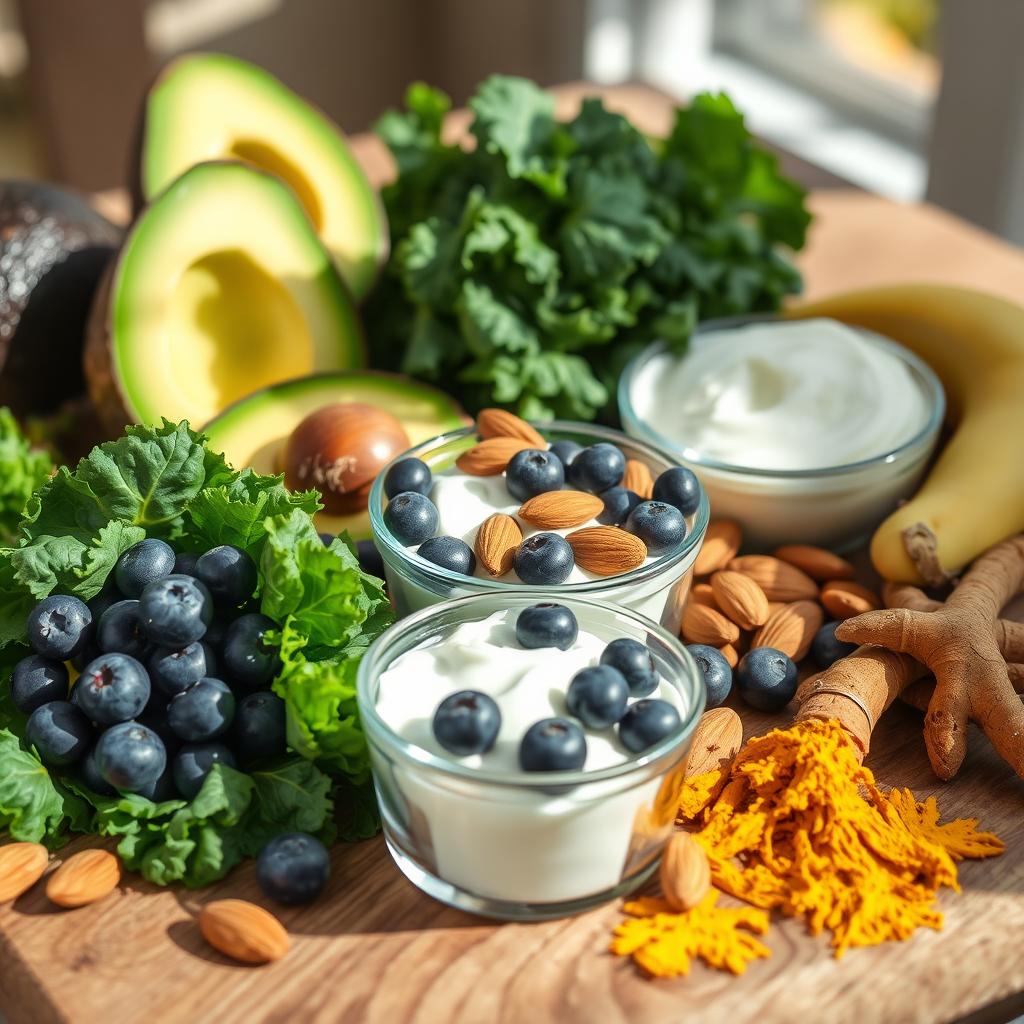Feeling bloated, sluggish, or just a bit “off”? You’re not alone. Many people struggle with digestive discomfort, and the answer often lies right on your plate. Your gut is home to trillions of tiny microbes that play a huge role in your overall well being, from digestion to your immune system and even your mood. The good news is that you can actively support these beneficial microbes through what you eat. Creating the best diet for gut health isn’t about restriction or complicated rules, it’s about adding a wide variety of nourishing, whole foods that your gut will love.
What is Gut Health and Why Does It Matter?
Think of your gut as a bustling city inside your digestive system. This city is inhabited by trillions of microorganisms, including bacteria, fungi, and viruses, collectively known as your gut microbiome. In a healthy gut, there’s a balanced community where beneficial microbes keep the potentially harmful ones in check. This balance is crucial for your health.
A healthy gut microbiome helps you digest food, absorb nutrients, produce essential vitamins, and protect against pathogens. It’s also deeply connected to your immune system, with about 70% of your immune cells residing in the gut. Emerging research even links gut health to mental health, skin condition, and the risk of chronic diseases. When this microbial city is out of balance a state called dysbiosis it can lead to issues like bloating, gas, inflammation, and more. Following the best diet for gut health is your primary strategy for keeping your inner city thriving.
The Pillars of the Best Diet for Gut Health
Building a healthy gut doesn’t require a radical overhaul overnight. It’s about consistently including foods that feed your beneficial microbes and limiting those that can cause trouble. The foundation of the best diet for gut health rests on a few key principles: diversity, fiber, and fermented foods.
Feed the Good Guys: Probiotics
Probiotics are live beneficial bacteria found in certain foods. Eating them directly adds reinforcements to your gut’s microbial army. They help maintain balance, support digestion, and contribute to a strong gut lining. Instead of relying only on supplements, you can find potent probiotics in fermented foods.
- Yogurt: Look for “live and active cultures” on the label. Plain, unsweetened Greek yogurt is a fantastic choice.
- Kefir: A fermented milk drink that’s like a tangy, drinkable yogurt. It often contains a wider variety of bacterial strains than yogurt.
- Sauerkraut: Fermented cabbage. Choose refrigerated versions, as shelf stable options are often pasteurized, which kills the good bacteria.
- Kimchi: A spicy, fermented Korean side dish, typically made from cabbage and other vegetables.
- Kombucha: A fizzy, fermented tea. Be mindful of the sugar content, as some brands add a lot.
Fuel the Troops: Prebiotics
If probiotics are the soldiers, prebiotics are their food supply. Prebiotics are types of fiber that your body can’t digest, so they travel to your colon where your gut bacteria feast on them. This process helps the good bacteria multiply and produce beneficial compounds like short chain fatty acids (SCFAs), which nourish the cells of your colon lining.
Excellent sources of prebiotics include:
- Garlic & Onions: These kitchen staples are packed with prebiotic fibers.
- Leeks & Asparagus: Delicious vegetables that are great sources of inulin, a type of prebiotic fiber.
- Bananas: Slightly under ripe bananas are particularly high in resistant starch, which acts as a prebiotic.
- Oats: A fantastic source of beta glucan fiber, which has prebiotic effects.
- Apples: Rich in pectin, a fiber that feeds beneficial gut bacteria.
The Power of Fiber
Fiber is a cornerstone of the best diet for gut health. It’s the carbohydrate part of plant foods that your body can’t digest. It keeps your digestive system moving, prevents constipation, and, as we’ve seen with prebiotics, provides food for your microbiome. The goal for most adults is to get between 25 and 38 grams of fiber per day, but most people fall far short of that.
To increase your fiber intake, focus on:
- Whole Grains: Oats, quinoa, brown rice, barley, and whole wheat bread.
- Legumes: Lentils, chickpeas, black beans, and kidney beans are fiber powerhouses.
- Nuts & Seeds: Almonds, chia seeds, flaxseeds, and walnuts are great sources.
- Fruits & Vegetables: Aim to “eat the rainbow.” The more variety you get, the more diverse your fiber intake will be.
Don’t Forget Polyphenols
Polyphenols are natural compounds found in plant foods. They act as antioxidants, helping to reduce inflammation in the body and the gut. Your gut microbes also love to munch on them, transforming them into other beneficial compounds. Including polyphenol rich foods is a key part of an effective diet for gut health.
Look for deeply colored foods like:
- Berries (blueberries, raspberries)
- Dark chocolate (70% cacao or higher)
- Green tea
- Olive oil
- Red grapes
Foods to Limit for Better Gut Health
Just as important as what you add to your diet is what you limit. Certain foods can disrupt the balance of your gut microbiome, promote inflammation, and contribute to digestive issues. A truly great best diet for gut health involves minimizing these items.
- Ultra Processed Foods: These items (think packaged snacks, sugary drinks, and fast food) are often high in unhealthy fats, sugar, and artificial additives that can harm your gut bacteria.
- Excessive Sugar: A high sugar diet can feed less desirable bacteria and yeast in the gut, leading to an imbalance.
- Artificial Sweeteners: Some studies suggest that artificial sweeteners like aspartame and sucralose may alter the composition of the gut microbiome.
Your 7 Day Gut Health Meal Plan for Beginners
This sample plan is designed to be a simple, delicious introduction to the best diet for gut health. It focuses on whole foods, fiber, prebiotics, and probiotics. Feel free to mix and match meals, and always listen to your body. Remember to drink plenty of water throughout the day!
| Day | Breakfast | Lunch | Dinner | Snack Idea |
|---|---|---|---|---|
| Day 1 | Oatmeal cooked with water or milk, topped with blueberries, chia seeds, and a sprinkle of cinnamon. | Large mixed greens salad with chickpeas, cucumber, tomatoes, and a simple olive oil vinaigrette. | Baked salmon with roasted asparagus and a side of quinoa. | An apple with a handful of almonds. |
| Day 2 | Plain Greek yogurt with sliced banana and a drizzle of honey. | Leftover salmon and quinoa salad. | Lentil soup with a side of whole grain toast. | Baby carrots with hummus. |
| Day 3 | Smoothie made with kefir, spinach, a handful of mixed berries, and a tablespoon of ground flaxseed. | Chicken and vegetable stir fry with brown rice. Use garlic and onions for prebiotic power. | Black bean burgers on a whole wheat bun with a side salad. | A pear. |
| Day 4 | Scrambled eggs with sautéed mushrooms and spinach. A slice of whole grain toast on the side. | Leftover lentil soup. | Sheet pan dinner with chicken sausage, bell peppers, onions, and sweet potatoes roasted in olive oil. | A small bowl of plain yogurt. |
| Day 5 | Overnight oats made with rolled oats, chia seeds, almond milk, and mashed raspberries. | Quinoa bowl with roasted vegetables (broccoli, zucchini), black beans, and avocado. | Turkey meatballs with whole wheat pasta and a simple tomato sauce. Add a side of kimchi. | A handful of walnuts. |
| Day 6 | Plain Greek yogurt with a mix of seeds (sunflower, pumpkin) and a few blackberries. | Leftover turkey meatballs and pasta. | Hearty beef and vegetable stew with barley. | A small glass of kombucha. |
| Day 7 | Whole wheat toast with avocado and a sprinkle of red pepper flakes. | Tuna salad (made with Greek yogurt instead of mayo) served with whole grain crackers and celery sticks. | Grilled chicken breast with a large side of steamed green beans and a small baked sweet potato. | A few squares of dark chocolate (70%+). |
Beyond the Plate: Other Ways to Support Your Gut
While food is foundational, the best diet for gut health is supported by a healthy lifestyle. Think of these as bonus points for your microbiome.
- Stay Hydrated: Water helps fiber do its job, keeping your digestion smooth. Aim for around 8 glasses a day.
- Manage Stress: Chronic stress can negatively impact your gut bacteria. Incorporate activities like walking, meditation, or yoga into your routine.
- Get Enough Sleep: Poor sleep can disrupt your microbiome. Aim for 7 9 hours of quality sleep per night.
- Move Your Body: Regular physical activity is linked to a more diverse and healthy gut microbiome.
Frequently Asked Questions (FAQ)
How long does it take to improve gut health with diet?
The gut microbiome can start to change within just a few days of altering your diet. However, for lasting improvements and to feel a real difference, give it at least a few weeks of consistent effort. True gut healing is a long term process, and the best diet for gut health is one you can sustain.
What is the single best food for gut health?
There is no single “magic” food. The key to the best diet for gut health is diversity. Eating a wide variety of plant foods (aim for 30+ different types per week) provides different fibers and nutrients to support a diverse and resilient community of microbes.
Should I take a probiotic supplement?
While supplements can be helpful for some people in specific situations (like after a course of antibiotics), it’s generally better to get your probiotics from food. Fermented foods provide not only bacteria but also other beneficial nutrients. If you do consider a supplement, speak with a healthcare provider first.
Can I drink coffee on a gut friendly diet?
For many people, yes. Coffee contains polyphenols and fiber that can be beneficial for gut bacteria. However, it can be a gut irritant for some individuals, especially those with IBS or acid reflux. Pay attention to how your body responds.
Conclusion
Embarking on a journey to improve your gut health is one of the most powerful things you can do for your overall well being. The best diet for gut health isn’t about perfection, it’s about progress. By focusing on eating a diverse range of whole foods rich in fiber, prebiotics, and probiotics, you provide your gut microbiome with the tools it needs to flourish. Use the 7 day plan as a starting point to explore new foods and meals. Over time, these small, consistent changes can lead to better digestion, more energy, and a stronger, healthier you.





